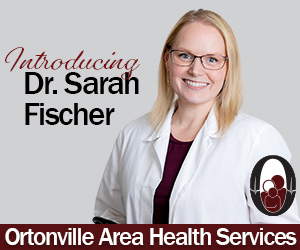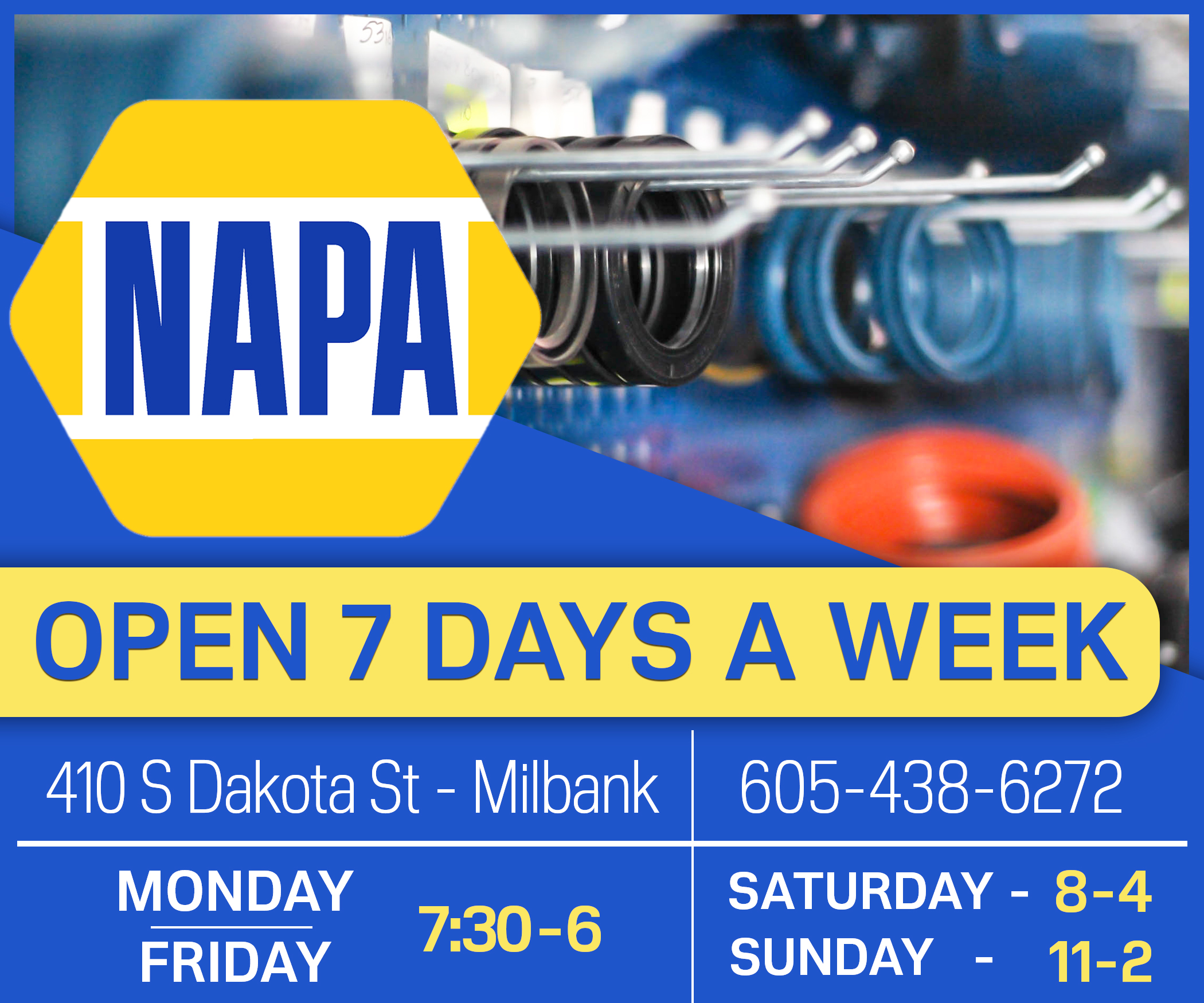
 Pastor Melanie Reiners of Parkview, Tabor, and First United Methodist churches in Milbank, Big Stone, and Ortonville delivered her last sermons on June 30. She is not only leaving her appointment at the three churches, a position she has held since August 2014, but she is also retiring from the ministry.
Pastor Melanie Reiners of Parkview, Tabor, and First United Methodist churches in Milbank, Big Stone, and Ortonville delivered her last sermons on June 30. She is not only leaving her appointment at the three churches, a position she has held since August 2014, but she is also retiring from the ministry.
Reflecting on the past five years, Pastor Melanie says, “The opportunity to walk with people through milestones of life has been a humbling experience. Baptisms, weddings, and services at the end of life are very meaningful to a pastor. It is humbling to honor a person’s life through a funeral or memorial service.”
Methodist Bishop Bruce Ough announced he has appointed the Reverend Barbara McKewin as the new pastor to the churches. Pastor McKewin will officially greet her congregations at services this Sunday, June 30.
Although Pastor Melanie is retiring from the ministry, she plans to continue working as the outreach person in Milbank and Ortonville for Dr. Wischmeier, an ophthalmologist from Aberdeen. She and her husband, Roger, will also continue their missionary work in Sierra Leone.
The couple undertakes their mission in Africa in cooperation with Central Global Vision Fund, a non-profit corporation that supports the Gess (Kissy) Eye Hospital. Pastor Melanie says, “We will make trips there as time and funds permit.” So far, Roger has made about 30 trips to Sierra Leone and Melanie about 20. She says, “Technology including email, Facebook, etc., keep us in contact almost daily with the eye hospital. So, we are thankful we can assist at all times, not only when we are there in person.”
She says her path to Sierra Leone began in 2002. “As I was in worship one Sunday morning, I responded to an altar call and asked God what it was He wanted me to do with the rest of my life. Now, as it is with all God-things, if you ask the question, you must be ready for the answer. The answer came shortly thereafter when Dr. Lowell Gess was speaking in our church about his work as a missionary eye surgeon in the impoverished country of Sierra Leone. There it was! The answer I had been looking for! I had spent all of my working years in the field of eye care, I knew I needed to respond to his request for support of the program at Kissy. I immediately told him I would like to go to Sierra Leone.”
She cites Dr. Gess as the person who most influenced her career and as a role model beyond comparison. Dr. Gess, now 96, is a retired ophthalmologist and Methodist pastor from Alexandria, Minnesota. Dr. Gess, who was instrumental in founding the eyecare hospital, began his missionary work in Sierra Leone in the 1950’s when he was a young Methodist pastor. He has made about 200 mission trips to Sierra Leone in over 60 years.
In reference to Dr. Gess, Melanie says, “Over these past few years, he has been my teacher, mentor, and wonderful friend. He offered the guidance of a father to us as Roger and I pursued our mission in Sierra Leone.”
Today, most African countries carry some form of a government travel advisory. Sierra Leone’s danger rating is two on a scale of four, based on it’s crime rate. The rating indicates travelers need to exercise increased caution as there is some risk. U.S. government officials are banned from traveling outside of Freeport after dark.
“We are careful,” Pastor Melanie says, but, we have never felt to be in danger in Sierra Leone. In many parts of the country, the roads are in poor condition. A rough ride a couple of years ago resulted in a whiplash injury for me, but other than that, we have thoroughly enjoyed traveling throughout the country and getting to know the places of greatest need.”
She says, “For those of us who can reach a grocery store in less than five minutes, it’s hard to imagine purchasing food in Freetown. It can often mean a trip lasting several hours. The approximately 1.5 million residents of the city travel by bus, car, motorbike, and small three-wheeled vehicles they call kay-kays. They all clog the streets, and traffic is often at a standstill.”
“Sierra Leoneans also struggle to obtain clean drinking water. So, we drink bottled water, brush our teeth with bottled water, and I prefer to cook with the bottled water. Until this past year, the electrical power in the country has been intermittent, to say the least. The National Power Authority now provides more reliable electricity, but the voltage isn’t consistent. Voltage regulators and transformers are used on all electrical devices (including my curling iron).” She says, “The pluses far outweigh the minuses, though, as we enjoy our time with those who have become like extended family to us.”
That family is comprised of a population which is about 78 percent Muslim and 20 percent Christian. But Pastor Melanie says, “We find the Muslims and Christians live very peaceably in Sierra Leone. At the time of the Ebola crisis, the pastors and imams worked together to educate the people about the proper procedures to avoid the spread of the disease.”
She says, our United Methodist bishop led the process. United Methodist pastors spoke in mosques and imams spoke in the churches. Their combined efforts proved effective as Sierra Leone had the lowest percentage of deaths due to Ebola than any of the surrounding countries.”
The Ebola crisis (2014-2015) arrived on the heels of Sierra Leone’s 11-year civil war (1990-2001) which had already ravaged their country. Dr. Gess, at the age of 92, spent two months at the eye hospital in Sierra Leone during the height of the pandemic.
“On February 11, 2015, he examined three patients who presented the same symptoms; all three were Ebola survivors. Although the people felt well again, Pastor Melanie says,” Dr. Gess determined it was possible the virus had remained alive in the fluid of the eye. The patients were suffering from uveitis, a painful inflammation of the eye.”
A team of researchers from Emory University responded to Dr. Gess’s call for assistance and Pastor Melanie says,”we felt privileged to assist them.” The team from Emory has continued to support the eye hospital by making several visits a year.
She calls attention to the thousands of people who have survived Ebola who continue to experience eye problems and the tragedy of the prevalence of early-onset cataracts in very young children.
“Currently,” she says, “we are working with the team from Emory to provide a vitreo-retinal unit at the eye hospital. The equipment would allow us to treat retinal detachments, retinal tears, macular degeneration and other disease of the retina. As of now, there is no such care in any part of West Africa”












No comments so far.
Be first to leave comment below.